Search
Remove Ads
Advertisement
Summary 
Loading AI-generated summary based on World History Encyclopedia articles ...
Search Results
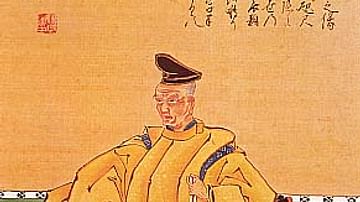
Definition
Chikamatsu Monzaemon
Chikamatsu Monzaemon (1653-1725) was a Japanese playwright who wrote for both the puppet theatre and kabuki. He is regarded as Japan’s greatest dramatist. Apart from their aesthetic appeal, his plays are of value because they provide an insight...

Image
Chikamatsu Monzaemon
Self-portrait by Chikamatsu Monzemon (1653-1725 CE), the Japanese playwright.
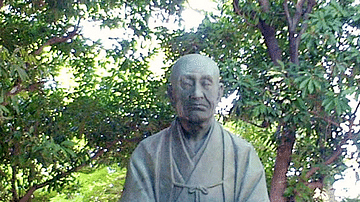
Image
Statue of Chikamatsu Monzaemon
A statue of Chikamatsu Monzaemon (1653-1725), the Japanese playwright. Chikamatsu Park in Amagasaki City, Hyogo Prefecture.
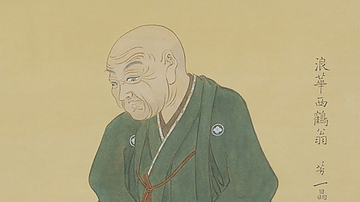
Definition
Ihara Saikaku
Ihara Saikaku (1642-1693) was a Japanese poet and novelist who played a leading role in creating the so-called ‘floating world’ (ukiyo-zoshi) genre of popular literature in the 17th century. His work was significant because, in terms of both...
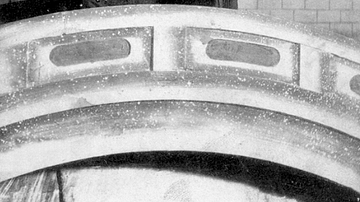
Image
Scene from The Battles of Coxinga
A scene from a modern production of Chikamatsu Monzaemon’s most famous historical play, Kikusenya Kassen ('The Battles of Coxinga'), written in 1715.
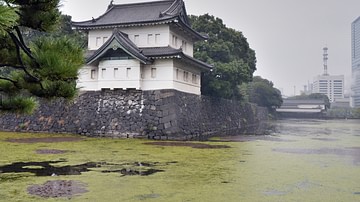
Definition
Edo Period
The Edo period refers to the years from 1603 until 1868 when the Tokugawa family ruled Japan. The era is named after the city of Edo, modern-day Tokyo, where the Tokugawa shogunate had its government. It is also sometimes referred to as the...
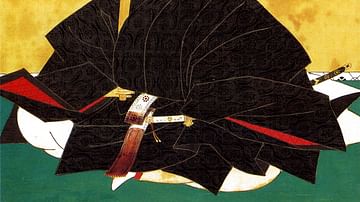
Definition
Tokugawa Tsunayoshi
Tokugawa Tsunayoshi (1646-1709) governed Japan as the fifth shogun of the Edo period (1603-1876). He has often been ridiculed as the 'dog shogun' because of the laws he enacted to protect the lives of animals. Economically, however, the period...
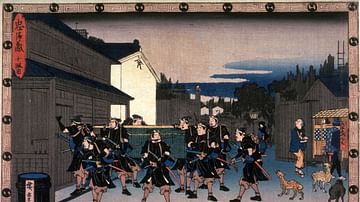
Definition
Chushingura
Kanadehon Chushingura (A Treasury of Loyalty of Loyal Retainers or The Story of the Forty-Seven Samurai) is the most popular play in the history of Japanese theatre, first performed in 1748. It is a work of fiction, but the details of the...
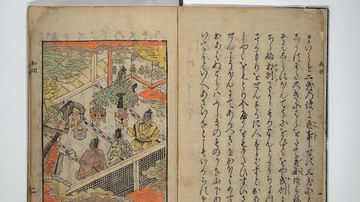
Definition
Japanese War Tales
War tales (gunki monogatari) is a genre of historical writing that developed in Japan from the Heian Period (794-1185) to the Muromachi Period (1333-1573). They form an important element in the development of the Japanese literary tradition...
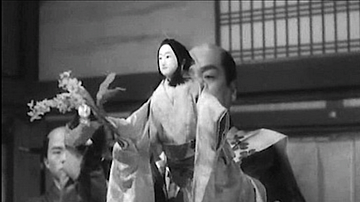
Image
Japanese Puppet & Handler
A scene from the 1952 film The Life of Oharu showing a female puppet and handler as used in Japanese puppet theatre.